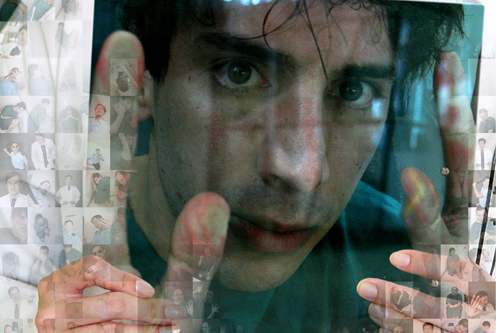“If anyone wants out, this is your last chance.”
You sit trapped in helplessness, drowning in turmoil as you silently watch the dehumanisation of the characters in front of you. Powerless to retaliate from your seat in the audience, yet too captivated to turn away.
The Das Experiment: Black Box is acclaimed director Samantha Scott-Blackhall’s latest project “to hold up a mirror to society’s’ face”.
In an interview with the UrbanWire, Samantha confesses, “The majority of the plays that I choose to direct often make a comment about hidden evils in everyone and what it takes for these Mr Hyde characters to surface.”
And the Das Experiment: Black Box is no exception to the case.
Background
Based on Mario Giordano’s novel adaptation of the Stanford prison experiment led by psychologist Philip Zimbardo in 1971, the play brings to life the story of the men imprisoned, their captors and what went on in the basement of Stanford University 37 years ago.
The Stanford prison experiment was a psychological study on the power of roles focusing on the relationship between prisoner and a prison guard. 24 were selected out of 70 male undergraduates who were deemed to be the most psychologically stable and healthy to play the roles of both guards and prisoners and live in a mock prison in the basement of the Stanford psychology building.
The students who were assigned to be the prisoners were paid $15 a day as an incentive. Don’t be mistaken though, that seemingly meagre amount of money is actually worth about $80 today.
The guards and prisoners quickly adapted to their roles and began living the life of their characters. Guards became sadistic when meting out punishments and showed enjoyment in the humiliation of the prisoners. The prisoners in turn became submissive, despondent and seemingly resigned to their fate.
The 14-day experiment was terminated on the sixth day. The experiment till today stands as one of the most questionable, in terms of research ethics, and has become textbook material on the subject.
The director’s take
Speaking to the UrbanWire, Samantha sums up that, “the play basically revolves around the theme of power, and how power can corrupt.”
When asked regarding the possibility of the actors being too involved in their roles and repeating history, Samantha commented, “One of the major themes that the play explores is the extent that role-playing can go when normal average individuals are put into a situation that allows them to ‘become’ that character. In this play, we have to similarly ensure that the actors themselves don’t take the role too far and ‘become’ the character rather than performing it. Fortunately this has yet to happen.”
The play at its core explores responsibility and choice.
“We all make choices every day that can change our own lives, or someone else’s. As responsible human beings we can decide to do ‘good’ things or ‘bad’ things. If you let someone out of the train before yourself then you’ve done one ‘good’ thing that day. The scientists could have stopped the experiment and the torment earlier but they didn’t,” said Samantha.
So, take a deep breath and leave your inhibitions at the door. “Just let go and feel,” says Claudio Girardi the producer-actor.
The Das Experiment: Black Box is graphic, it’s raw, it questions the human condition and finally reveals its darkest side.
In the words of Claudio, “It’s no musical”.
Ticket Giveaway
Together with Das Experiment: Black Box, the UrbanWire will be giving away 2 pairs of tickets to readers who send in their opinions about the Stanford prison experiment. Substantiated responses that leave an impression will be shortlisted for the contest.
Please send in your responses to contest.urbanwire@gmail.com by Nov 12. Winners will be notified by Nov 13 and can expect to attend the Nov 15 show.
Performance details
Rated: MA [16+]
Date: Nov 14 – Nov 29 [Except Mondays]
Venue: The Pavilion, Far East Square, 28 China Street
Performance Times : 8pm
Ticket Prices:
- Tues & Thurs Performances $35*
- Fri & Sat Performances $38*
- Sun Performances $35*
Discounts : Senior Citzens $28*; Students $28*

